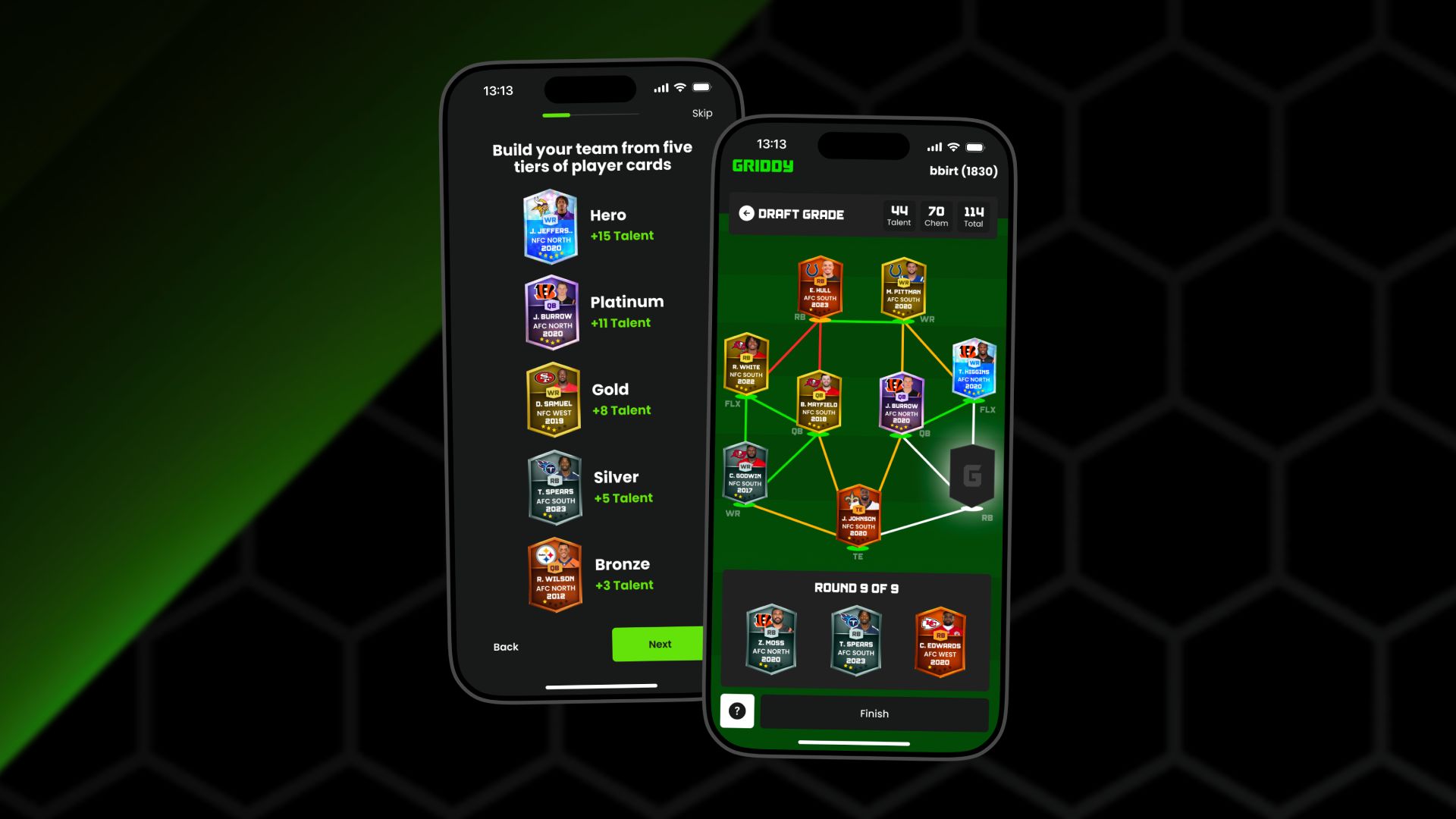- Betting Startups News
- Posts
- How Griddy turned fantasy football into a year-round game
How Griddy turned fantasy football into a year-round game
From Sleeper to startup: How Brian Birt turned the offseason problem into a year-round opportunity.

Three big ideas we cover:
How a former Sleeper product lead turned seasonality—the biggest flaw in fantasy sports—into a daily engagement loop.
Why Griddy is modeled after FIFA and Madden’s team-building mechanics, not real-world stats or box scores.
The free-to-play business model and organic, founder-first growth strategy that took Griddy to 30,000 users with nearly zero ad spend.
Fantasy sports have always been defined by their seasonality. Fans live for the fall, only to spend the next eight months refreshing mock drafts and reading training-camp articles until the games return. That off-season gap is exactly what Brian Birt set out to close.
“I wanted to build a game that passionate sports fans can look forward to playing every single morning they wake up,” the founder said on The BettingStartups Podcast. “Really that consistent availability and accessibility was the drive for me to create Griddy and build a game that people can play 365 days a year instead of just the Sundays in the fall or Thursday nights.”
Birt, who previously helped launch Sleeper’s real-money fantasy product, saw how limited engagement hurt both users and businesses. Griddy flips that equation by removing the sport’s dependence on live games altogether. The app introduces what Birt calls fantasy football puzzles—a nine-round draft where players build the highest-graded team possible without relying on real-world stats or outcomes.
“You get nine rounds, each round you get dealt three randomly generated player cards, and your objective is to match up those player cards on a grid,” he explained. “It very much turns into a puzzle where you’re trying to move your player cards around to figure out, ‘How do I build the best team?’”
The concept draws heavily from video games like Madden Ultimate Team, FIFA (now EAFC), and Football Manager, but strips away everything that makes them intimidating or time-consuming. “What people liked more than actually playing the games themselves was the team-building part of it,” Birt recalled of his experience playing with friends. “How can we strip away all of the extraneous stuff to create something that truly is that maximum level of accessibility where we turn it into this full video game and transform it into bite-sized entertainment.”
Equally intentional was his decision to make Griddy free-to-play. After building a real-money product at Sleeper, Birt wanted to avoid the friction that comes with that model. “It is quite a tall ask to be requesting [a player’s] full name, their birthday, their home address, their social security number, asking them to link a payment method to even try out the product,” he said.
Instead, Griddy takes a traditional mobile-game approach. Users get a few free drafts per day with the option to buy additional “draft tokens” through in-app purchases. That simplicity, paired with organic word-of-mouth growth, has helped Griddy quietly reach about 30,000 users and more than 3 million games played this year with limited marketing spend.
“Reddit has been a huge outlet for us,” Birt said. “For me, I'm positioning the business as founder-first and really telling my story and putting a face to the brand.”
Retention is the real story. Over half of new users still play a month later—Birt says his app is “in the 99th percentile,” from that standpoint. More than that, the data suggests that Griddy’s two-minute-a-day puzzle is scratching an itch fantasy players didn’t know they had.
Looking ahead, he sees opportunity far beyond football. “Because the app is not tied to any live games or stats, it's very much templatized in a way that we can copy and paste it from football into other sports,” Birt said. As an example, he pointed to how viewers of ‘The Bachelor’ wait for episodes to air weekly similarly to the seasonal lulls football fans experience. But whether it’s football, basketball, or entertainment, Griddy’s goal is largely the same: make fandom playable year-round.
Listen to the full podcast on YouTube, Spotify, and Apple Podcasts.